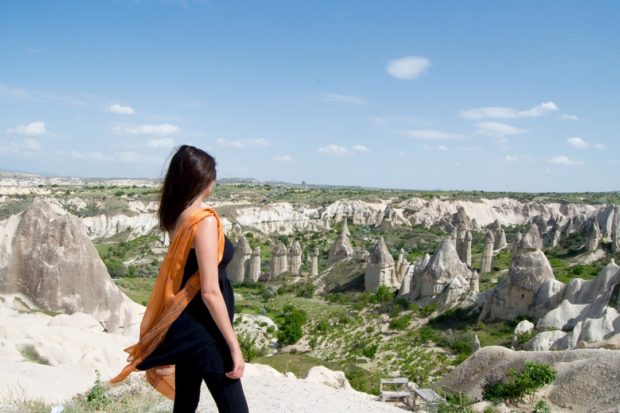Lessons Learned From 60 Countries of Travel

From breaking down in Bolivia to falling off a bike in Bora Bora, author Kia Abdullah has seen and done it all. She’s hiked to the rim of an active volcano in the remote islands of Vanuatu, traversed ‘suicide bend’ on the hair-pinned Sani Pass in Lesotho and dived, hiked and biked her way through fascinating countries like Eswatini, Tonga and Djibouti. Here, she shares five lessons she learned along the way.
Confidence is like a muscle
When I embarked on my first big trip – a year-long journey across the South Pacific and South America – my boyfriend, Peter, did most of the logistical wrangling. He would buy tickets at train stations, ask about schedules and book tables at restaurants. He was generally more direct and less reserved.
Fast forward six months and we arrived in South America where I took the reins because I could speak elementary Spanish and he could not. For five months of travel through the continent, I was the one making calls, asking questions and booking rooms.
Doing all this in my third language strengthened my confidence immensely. I didn’t even realise how much until we visited Turkey a year later and Peter commented that I was far more direct. It made me realise that confidence is like a muscle: the more it’s exercised, the stronger it becomes.
If in doubt, spend the money
When it comes to experiences, I’ve learned that I should just go ahead and spend the money. In Patagonia, we forwent a trekking trip on Perito Moreno Glacier because it was $100 USD per person. Years later, I regret not doing the trek. Had I spent the money, I wouldn’t be thinking about that $100 USD at all.
I have the privilege of living in a developed country and, in reality, $100 USD isn’t very much to me – one or two dinners out in London. Does that compare to trekking Perito Moreno Glacier? Not for a minute. Now, if I’m in doubt, I spend the money.

You’re not too old to learn new tricks
I learned to ride a bicycle at the age of 28, approximately 21 years after most of my friends. I learned to ride a horse at the age of 30. And I learned to dive at the age of 31. I have sustained a few injuries from these newly-adopted activities. But I have improved in skill over the years and have always had fun. Travel has taught me that I’m not too old to learn new tricks and in all likelihood neither are you.
Phones are killing our manners
I have a hard rule against using phones at the dinner table. I will not tolerate Peter using his phone while we eat and I always return the courtesy. Too many times I have seen couples (in places like Mauritius, Fiji and Tahiti no less) staring into their phones at the dinner table instead of talking to each other or enjoying their surroundings.
Much is made of the fact that we had other ways of ignoring each other before phones became popular (books, newspapers and so on). But I’ve never seen a person excuse themselves at dinner to read a page of a book. I genuinely feel that something is being lost because of this collective addiction.

Comparison is the thief of joy
Theodore Roosevelt once said that “comparison is the thief of joy”. Travel has taught me that this is true – at least for me. Sometimes, I look at my friends in London with their careers, big homes and multiple cars. And I wonder if I’m doing the right thing in travelling instead of working in an office and trying to climb the property ladder.
It’s when I catch up with these friends and they tell me how much they hate their jobs and how they wish they could do what I do that Roosevelt’s quote rings most true.
This guest post was authored by Kia Abdullah

Kia Abdullah is an author and travel writer from London. She has contributed to The New York Times, The Guardian, The Telegraph and the BBC, and is the founding editor of outdoor travel blog Atlas & Boots, read by 250,000 people a month. Kia’s new novel, Take It Back, is out now (HarperCollins, 2019).

